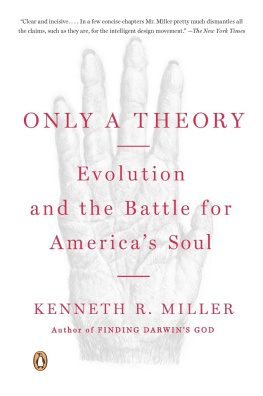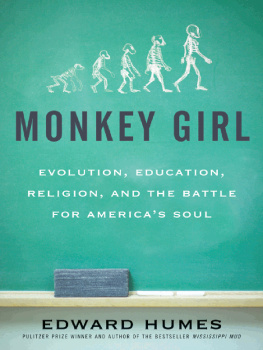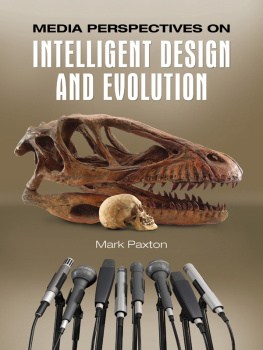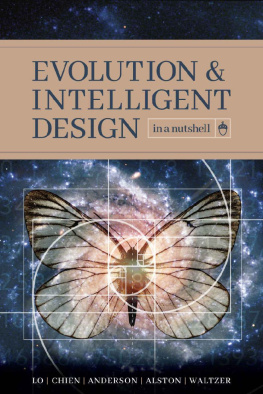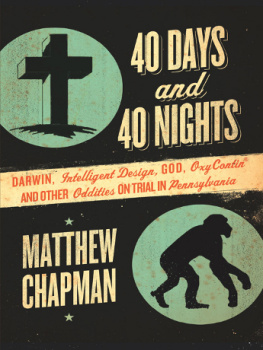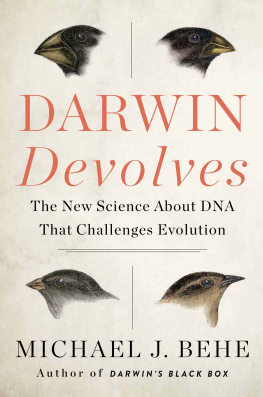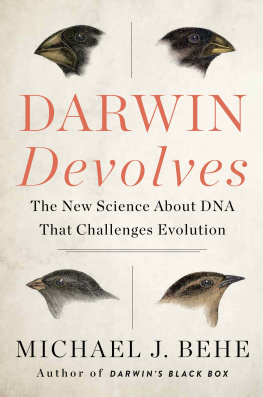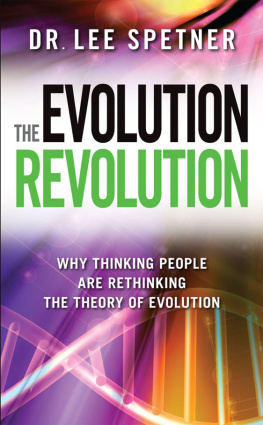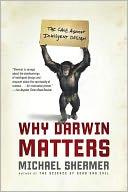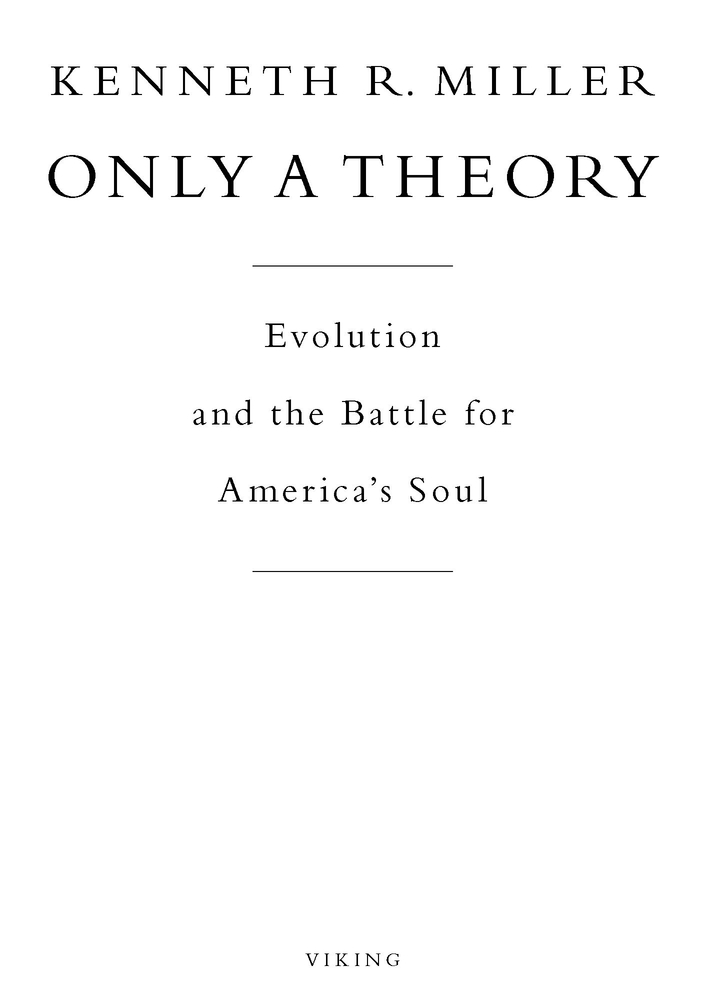Table of Contents
ALSO BY KENNETH R. MILLER
Finding Darwins God
To my daughters, Lauren and Tracy,
lovers of Nature, Life, and Learning
Preface
The words belonged to Disraeli, but their delivery was pure William F. Buckley, Jr., dean of American conservatism and iconoclastic critic of all things left and liberal. At the end of a rousing televised debate on evolution, Buckley invoked the words of the British statesman to sum up his own views on Darwin: What is the question now placed before society? The question is this: Is man an ape or an angel? I, my Lord, am on the side of the angels.
Buckleys erudite summation, in that 1997 debate on his program, Firing Line, was no mere turn of phrase. Buckley viewed Disraelis decision to stand with the angels as far more than a matter of mere preference, assuring his opponents that beneath their surface glitter and hidden within their metaphor, these words contain a truth that shall someday break the pieces of the new philosophy, which [Thomas] Huxley spent his life so devotedly to establish. That new philosophy, which Buckley hoped to smash, was evolution.
I was one of several who stood in opposition to Buckleys views that evening, and I marveled that an intellect as strong as his could possibly have rejected the cornerstone of modern biology, but reject it he did. In time, I came to see that his opposition, and that of many other Americans, to the theory of evolution was symptomatic of a deep unease within our society over the nature of modern science. For them, evolution is far more than a mistaken scientific theory. It is the cutting edge of a dangerous and destructive materialism that threatens the heart and soul of our civilization and culture, and it must be opposed at all costs.
In many ways, I think that William F. Buckley misunderstood evolution, and he certainly misunderstood the nature of science. There is indeed a soul at risk in Americas evolution wars, but it is not the cultural one that Buckley sought to save. Rather, it is Americas scientific soul, its deep and long-standing embrace of discovery, exploration, and innovation, that is truly at risk. That is why the stakes in this struggle are far greater than the wording of curriculum standards or the nature of textbook passages on the Cambrian fauna. The choice we face as a nation is nothing less than whether we will continue to be the worlds scientific leader or quietly watch as the torch of discovery is lifted from our hands. I wrote this book to describe the nature of that choice and the realities of the struggle, and above all in the hope of reaching those who, like the late William F. Buckley, have yet to appreciate that the great gems of Western culture and thought are inextricably linked to scientific reason and rationality.
Many individuals contributed to the ideas presented in Only a Theory, and I am grateful for their help, their support, and most especially their friendship. These include Thomas Schneider, who was kind enough to discuss information theory with me and to review part of my manuscript; David DeRosier, a patient and supportive scientific friend whose devotion to the art and craft of biology has always inspired me; and Francis Collins, whose thoughts on the relationship between science and faith have helped open the eyes of many who assume that these two ways of knowing must always be in conflict. I am grateful for the support of many wonderful people who share my views on the importance of this struggle, including Lawrence Krauss, Fr. George Coyne, Steve Case, Patricia Prince-house, Eugenie Scott, Nick Matzke, and Keith Miller.
I was fortunate to have played a small role in the landmark Kitzmiller v. Dover trial in 2005 and will remain ever grateful for the opportunity. In so doing, I was able to work with people of exceptional courage and conviction, such as Dover Area High School teachers Bertha Spahr, Jennifer Miller, and Rob Eschbach, as well as Tammy Kitzmiller and her fellow plaintiffs. I remain in awe of the legal talents of attorneys Vic Walczak, Eric Rothschild, and Steve Harvey and am honored to have joined fellow witnesses Barbara Forrest, Jack Haught, Kevin Padian, and Brian Alters in this extraordinary trial. For better or for worse, we will be linked forever in a case that struck an important blow for science education and religious freedom.
I thank my colleagues at Brown University for their continuing support and many kindnesses as I worked on this book, as well as my students and advisees for their forbearance in the face of my efforts to gather material for this manuscript. Finally, and most important, I thank my wife, Jody, for her love and understanding, and my wonderful daughters, Lauren and Tracy, to whom this book is dedicated.
ONE
Only a Theory
IN A COURTROOM even a whisper can catch your attention, especially one that comes right at you with a smile and a wink.
Only a theory, she said, shaking her head just enough to get my attention as I walked past her. Its only a theoryand were gonna win. Her smile was genuine, and its certainty was unmistakable.
She didnt winat least not that day and not in that courtbut the quiet confidence of the remark has stayed with me ever since. It has provoked me to doubt, wonder, and even fearand its my inspiration for writing this book. It came at the conclusion of my first trial, the first time Id ever sat in a witness stand and given testimony, the first time Id ever been cross-examined, the first time Id ever had to meet reporters on the courthouse steps. But it wouldnt be the lastand thats part of this story, too.
When I walked into a federal courtroom in Atlanta in the fall of 2004, I could easily have concluded that a book was on trial. An attorney stood next to a four-foot-high enlargement of the table of contents of a biology textbook. Nearby a collage of more than fifty pages from the evolution section of the same book had been pasted on cardboard and placed on a mounting stand. It seemed to form a wall of evidence that might be used, one could suppose, to convict the book or its authors of some awful, seditious offense against the state or against the good schoolchildren of Georgia, for whom the book had been written.
These were first impressions, to be sure, but they were impressions that mattered, especially to me, the coauthor of that book. It was almost as though the project on which Joseph Levine and I had labored for so many years had been cut apart, and now its entrails were glued to that board like the organs of a laboratory animal pinned against the soft wax of a dissecting tray. When I climbed into the witness stand, I wondered if the attorneys regarded me that way, too. Were they looking at me as I might look at a laboratory mouse? Trying to find a quick and easy way to get inside and take what they needed?
I would find out soon enough. But the remarkable thing about that trialapart from the packed courtroom, the media attention, the calls from reporterswas the size and scale of what was being litigated. All of the effort, paperwork, and argument was focused on a paper sticker, about six inches square, containing just three sentences:
This textbook contains material on evolution.
Evolution is a theory, not a fact, regarding the origin of living things. This material should be approached with an open mind, studied carefully, and critically considered.
Why such a fuss? The issue in this trial was whether the actions of the Cobb County Board of Education, in affixing this sticker to the inside of thousands of public school science textbooks, amounted to a violation of the First Amendment of the United States Constitution. Constitutional questions are always matters of great interest, and one that applied to the public schools, where most American children are educated, naturally drew plenty of notice and passion.

